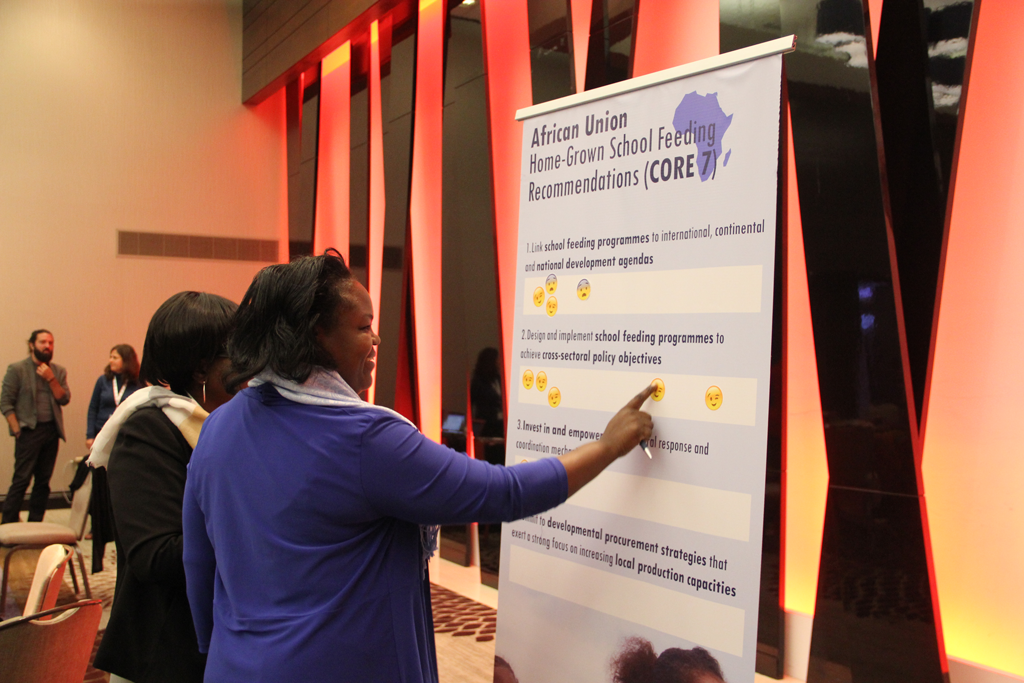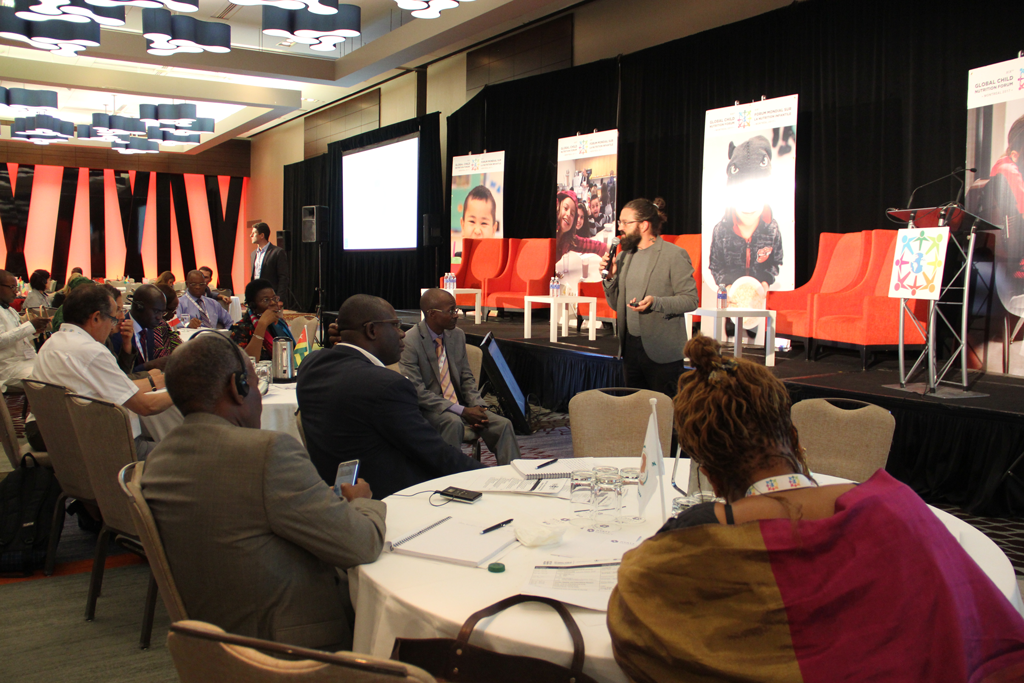During the global Child Nutrition Forum last week in Montreal, the WFP Centre of Excellence against Hunger took advantage of the presence of many of its partner countries to present some results, to share new tools, and to hold bilateral meetings with governments’ representatives.
The WFP Centre presented the results of its five-year impact evaluation and the African Union study on the status of school feeding. During the technical sessions, the Centre’s experts conducted workshops to around 150 people on a specific methodology and a new tool to simulate costs and benefits in the policy cycle. The WFP Centre was also responsible for leading the discussions of the Forum’s Communiqué.

Cost-benefit analysis
The workshops on cost-benefit analysis included a presentation and practical exercises to help participants understand the process of building cost-benefit models across the policymaking cycle as well as their application to analyze school feeding and other social protection programmes. The methodology focuses on building cost-benefit models using micro-simulation techniques and economy-wide impact evaluation methods, based on a new cost-benefit analysis model developed by the Economic Policy Research Institute (EPRI) and the WFP Centre of Excellence specifically for partner countries’ needs.

School feeding in Africa
The Global Child Nutrition Forum was a new opportunity for the WFP Centre of Excellence to discuss with partner countries the results of the study on the status and impacts of school feeding in the African continent. The study was commissioned to the WFP Centre of Excellence by the African Union and was conducted by EPRI.
Nard Huijbregts, EPRI Lead Social Policy Advisor, presented the study to the Forum’s plenary. The study has not been disseminated to the public yet, but the results have been shared with the African Union Commission. According to Huijbregts, one of the impacts the study has already generated was the creation of the Implementation Cluster on School Feeding, as part of the African Union’s Continental Education Strategy for Africa (CESA).
The seven recommendations of the study were also discussed with countries at the WFP Centre of Excellence’s technical consultation booth. Government representatives were encouraged to identify among the seven recommendations the ones that made more sense to their specific contexts, and the ones that did not resonate with the challenges they faced.
Impact evaluation
The WFP Centre of Excellence against Hunger has contributed to changing the understanding of governments in 30 countries about the potential of school feeding: in addition to providing food to children in schools, school feeding programmes are an inter-sectoral food and nutrition security policy, with multi-dimensional impacts. This was the highlight of the impact evaluation carried out to assess the first five years of the Centre of Excellence.
The results of this exercise were presented to the Forum’s participants. The results indicate that the Centre contributed significantly to the overall recognition of school feeding as a strategy to promote sustainable development. The Centre also promoted the involvement of high-level government actors, which increased countries’ commitment to school feeding, and the partnerships fostered by the Centre helped to strengthen technical skills crucial to the development of national school feeding policies linked to local agriculture.




